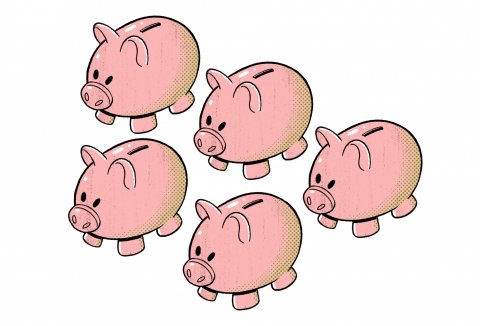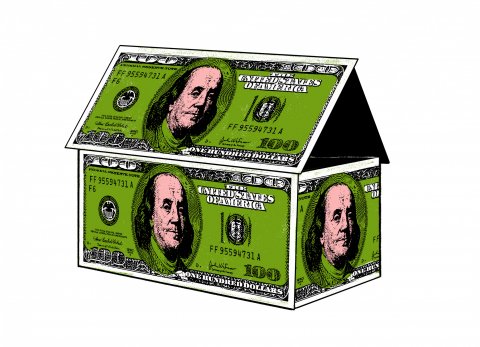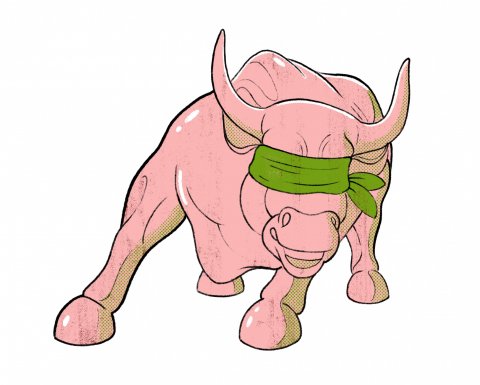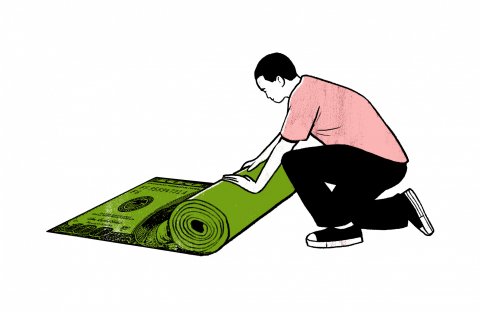
Are you recession-ready? Shore up your safety net, improve your job prospects, work on your trouble spots, protect your retirement savings, and more: You need to protect your money now.
Eight months after the current economic expansion officially became the longest in U.S. history, concerns about its impending demise are rising sharply.
The greatest risk, of course, is the rapid spread of the Coronavirus, which economists worry could trigger a global recession. Last week, the Organisation for Economic Co-operation and Development cut its forecasts for most of the world's major economies, including the U.S., citing the risk of COVID-19's expansion leading to wider restrictions on the movement of people, goods and services; falls in business and consumer confidence; and slowing production.
"The virus risks giving a further blow to a global economy already weakened by trade and political tensions," said OECD chief economist Laurence Boone. "Governments need to act immediately to contain the epidemic, support the health care system, protect people, shore up demand and provide a financial lifeline to households and businesses that are most affected."
Before you hit the panic button, though, here's another critical fact: Nobody actually knows when the next recession will actually hit. For one thing, economists as a group are notorious for missing these calls (research last year by the International Monetary Fund found that, out of 153 recessions in 63 countries between 1992 and 2014, only five were predicted in advance by the forecasts reviewed by the IMF). Key indicators are also more mixed than recent headlines suggest. The unemployment rate, for instance, just hit a 50-year low and, though the rate of growth is slowing, GDP is still rising and expected to do so for the next year or more.
The only thing that's crystal clear: After more than 10 years of an economy that keeps going up-up-up, an eventual downturn is a sure bet—and the time to prepare for it is now. "Trees don't grow to the sky," says Christine Benz, director of personal finance at Morningstar, an investment research firm. "At some point you know there will be slackening in what's been a great economy for a very long time, so it makes sense to take pre-emptive action to safeguard your finances."
It's like living in an area that's prone to hurricanes, says Carl E. Van Horn, director of the John J. Heldrich Center for Workforce Development at Rutgers University. "You know it's likely there will be another hurricane at some point and, if you're smart, you don't wait until it's two days away to stock up on batteries, water and plywood," he says. "You have to be ready in advance."
To prepare for the next economic storm, here are a dozen smart moves to make now.

SHORE UP YOUR SAFETY NET
Even in the best of times, many Americans live on the financial edge.
The Federal Reserve reports that nearly 40 percent of households would struggle to come up with the cash to cover an unexpected $400 expense, let alone the larger amounts they'd need to tide them over after a layoff, reduction in work hours or any of the other strains on income that are common during a recession. Meanwhile, research by American Institute for Economic Research shows that families in the bottom half of the income spectrum typically only have enough savings to replace one to two weeks of income.
Even more affluent households are often cash-strapped. Among those making $85,000 or more—the top 25 percent of the income range—the typical family only has enough in liquid savings to replace 40 days of income.
What to do?
- Build up cash reserves. Financial planners typically recommend keeping enough in an emergency fund to pay for at least three to six months of basic living expenses, and preferably more heading into a recession. That's especially important if you work in a field that's tied to the economy or you're 50 or older. In the Great Recession, the average length of unemployment was 29 weeks, but for workers aged 55 to 64, it was one year, according to the Urban Institute.
It's a lofty goal. But don't let a daunting number put you off; in fact, any amount you tuck away will be helpful. "Even a thousand bucks is better than no bucks," says financial planner Stephanie McCullough, founder of Sofia Financial in Berwyn, Pennsylvania.
To increase your odds of success, open a separate savings or money-market account and name it something like the "Oh S--t Fund," McCullough suggests. This leverages a behavioral finance principle called mental accounting: When you tag money for a specific purpose, you're less likely to spend it on other things.
Then, automate contributions by designating a set amount to go into the "fund" every time you get paid via direct deposit (most companies allow you to split your paycheck between two or more accounts). Or set up a similar plan at your bank or brokerage or via a savings app like Qapital. The app also has a few quirky pre-set rules you can use to add a dollar or two to your account every time you, say, go for a workout or buy a latte.
- Take some credit. If you're a homeowner who has built up ample equity, opening a home equity line of credit that you can tap as needed is a good backup to your emergency fund. "It's one of those things you have to put in place when times are good," McCullough says. That's because once a recession hits, banks get stingy with approvals for loans and the amount you can borrow—and if you're laid off and lose your income, you'll almost inevitably be rejected, no matter how much equity you have in the house.
- Work on a Plan B. Consider a few what-if scenarios—what if you're laid off or your spouse is, what if you lose a big client, what if you can no longer get health insurance through work? Think about how you'd handle them, creating a mental checklist of the steps you'd take. Research on financial shocks from the Center for Financial Services Innovation (since renamed the Financial Health Network) found that planning and saving for the unexpected was the attribute most closely correlated with good financial health, even more than how much money an individual made.
McCullough likens it to a fire drill. "You can think more coolly when you're not in crisis," she says. "You hope it won't happen but if a fire does break out, you've tested the fire escape, you've checked the extinguishers, everyone knows the plan."

IMPROVE YOUR JOB PROSPECTS
Although most economists expect the next downturn will be milder, you can get some insight into patterns that might play out in the labor market by looking back at the Great Recession, when unemployment roughly doubled to a peak of 10 percent.
Younger workers were hit especially hard. From May 2008 to March 2011, nearly one in three people aged 25 to 34 had a period when they were out of work, compared with 17 percent of workers aged 50 to 61, an analysis by the Urban Institute found. When older employees did lose their jobs, though, they took far longer to find a new position—often a year or more and commonly had to settle for a fraction of their former salaries.
One silver lining: An uptick in unemployment is one of the last developments in a typical recession, so you have plenty of time to whip yourself into optimum job-seeker shape.
- Update your vitals. If you are laid off, having your resume and LinkedIn profile ready to go can help you move forward quickly with a job search, at a time when you may just want to curl up on the couch in sweats watching daytime TV. "People underestimate the emotional shock of losing a job, which can leave them feeling angry and frozen," says Van Horn. "But it's important to feel a sense of urgency because evidence shows companies attach negative characteristics to people the longer they're out of the labor market and the stigma makes it harder to get a job."
In addition to adding your latest position and responsibilities, use an online tool such as Jobscan to identify key words that can help your resume stand out to hiring managers, recommends Maria Heidkamp, director of the Heldrich Center's New Start Career Network. More than 90 percent of large employers now use Applicant Tracking Systems, sometimes called resume robots, to identify promising candidates, often using key word scans.
Also make sure your LinkedIn profile has a picture and a summary that's more than three lines. "Your profile is one of the first things HR people look at," says Heidkamp. "You want to show you're current."
In addition, you'll want to include tangible, quantifiable accomplishments, whenever possible, advises career coach Caroline Ceniza-Levine of the firm SixFigureStart. "In recessionary times, employers are very gun shy," she says. "They want evidence a new hire will pay off."
If you'd like some guidance, you can hire a professional resume writer or career coach who can talk you through best practices or apply them to create a new resume and LinkedIn profile on your behalf. State and local governments and community colleges also often provide free or low-cost resume help and other career services to job seekers as well.
- Reach out. Now is also the time to forge or renew connections with people who could be helpful later in identifying or recommending you for open positions. Referrals are the top source of hires, surveys show. "You always want to network when you don't need anything," says Ceniza-Levine. "Your first connection with someone you haven't spoken to in a few years should be, 'hello, how are you doing?' not 'I just lost my job, do you have any leads?'"
Social media, with its constant notices about someone's work anniversary or new title, provides the perfect excuse to make contact. Always include a short, personal message and the reason that prompted you to reach out, so the person on the receiving end doesn't think you have an ulterior motive. "We all know people who you don't hear from unless they need something," says Ceniza-Levine. "Don't be that person."
- Make a move sooner than later. Try to gauge how vulnerable you are to a layoff in a recession. Ask yourself: How did your last performance review go? Are colleagues who you respect heading for the exits, indicating the company could be in trouble? Is your industry shrinking or heavily dependent on consumer discretionary spending?
If so, you might want to start a job search in earnest now. "You don't want to be forced into the job market when lots of other people are being laid off too," Ceniza-Levine says. "It's better to look when it's still an employee's market and people are getting hired."

WORK ON YOUR TROUBLE SPOTS
If a recession hits, what would your biggest financial problem be? Taking steps to address that pain point now will make your life a lot easier if trouble comes.
"Your emotions are your best clue," says McCullough. "What stresses you out the most—credit card debt, the feeling that you're spending beyond your means? Whatever the little nagging voice in your head is telling you is what you should tackle first."
These moves address the most common contenders for many families.
- Pay down the plastic. If yours is among the 37 percent of American households that carry a balance, now's the time to get aggressive about paying off credit card debt. At the current average financing rate of 17.25 percent, you can save a ton in interest and get out of the red faster by shifting the amount you owe to a zero-percent balance-transfer card. Look for offers that don't charge a fee and give you at least 12 to 15 months to pay off your debt before interest kicks in.
An alternative if you own your home and have a good amount of equity is to pay off your cards with a home equity line of credit. While it's generally not good practice to pay one debt by borrowing somewhere else, the substantial difference in interest rates—HELOCs recently averaged 6.05 percent, according to Bankrate—enables you to pay off the debt faster and at a lower cost, assuming you put the same amount toward the home equity line every month as you've been paying on your credit cards.
- Earmark spending cuts. Go ahead, keep drinking the latte for now if you want. But if you're living paycheck to paycheck—especially if your job or industry puts you at higher-than-average risk of a layoff—at least give some thought to what expenses you could trim if those paychecks disappear for a while.
How many streaming services do you really need? Do you actually use that gym membership? Could you get by with one car instead of two? How about cutting back on restaurants and take-out? (An analysis of over 30,000 transactions from Common Sense, a financial research lab at Duke University, found that eating out was one of Americans' most regretted expenditures.)
Bonus: Studies show the very exercise of thinking about specific ways to reduce spending often prompts people to cut back on some outlays automatically.
- Get a check-up. More than half of employees recently surveyed by Bank of America said they'd skipped or postponed a doctor's appointment, medical test or procedure, buying medicine or another healthcare activity to save money. That's a scary but understandable result, given how expensive healthcare has gotten.
Still, the time to schedule any medical tests or procedures you need or have been putting off is now—when you still have (relatively) generous coverage from an employer and there's a good chance you've met your deductible for the year. If you're laid off, any insurance you get on your own is likely to be a lot more expensive than your work plan and, if you opt for a government exchange or individual policy over COBRA, more restrictive as well; often, those plans do not provide any coverage for out-of-network providers and have a more limited number of in-network options than the typical employer plan does.

PROTECT YOUR RETIREMENT SAVINGS
Stocks historically have been a leading indicator of turning points in the economy, starting to tumble six or seven months before a recession begins (they also lead by several months on the upside). Is that the message behind the market's most recent meltdown? While fear that the spread of the coronavirus will trigger a global recession has certainly been the driving force behind the sharp drop in stock prices over the past month, it's not clear whether the U.S. economy will slow down or actually shrink—and that lack of clarity is part of the problem.
"Markets hate uncertainty and there is a ton of it currently in play," says Greg McBride, chief financial analyst at Bankrate.com, adding, "Markets fall sharply but can also rebound quickly."
Typically, by the time a pivot in the economy is clearly recognizable, the worst damage is often done. "Changing your investments to avoid losses at that point is like swerving after you've hit a pothole," says Dan Egan, director of behavioral finance and investing at Betterment, a financial advisory firm. "You're too late and risk hurting yourself in the process."
Here's what to do instead.
- Strap in for the roller coaster. How bumpy can the market get as a downturn nears? Heading into the Great Recession, stocks lost more than 50 percent of their value in 17 months before shooting up nearly 400 percent over the next 10-plus years. "There's no escaping the ups and downs, but over the long run, you do make the most money in stocks," says McCullough. "To get the payoff, though, you've got to stay on the ride."
To help you sit tight, make sure you're not taking any more risk than is appropriate for your age and life stage. The older and closer to retirement you are, Benz notes, the more conservative the mix of investments in your 401(k) and IRA should be because you have fewer years to bounce back from losses.
The easiest way to get an age-appropriate mix is through a target date fund, which gives you a pre-mixed portfolio of stocks, bonds and other assets based on the year you're likely to retire. The closer you get to your "target date," the safer the mix of investments gets. Nearly half of 401(k) plan participants in their 20s already invest through a target date fund (probably because it's usually the default option), but fewer than 20 percent of savers in their sixties do, according to the Investment Company Institute (ICI).
If you prefer to choose your own investments, take a look at your holdings to make sure the market's steep rise over the past few years hasn't given you a heavier weighting in stocks than you intended. Again, that's especially important for savers who are within a few years of retirement. According to ICI, about one in five 401(k) investors in their sixties had more than 80 percent of their account in stocks at the end of 2018—at least 10 to 20 percentage points higher than financial advisors typically recommend.
Also worth considering: "If you've been monkeying around with riskier assets like bitcoin or individual technology stocks," says Benz, "you might want to lighten up."
- Might need money? Shift a bit to cash now. Older investors who are in or near retirement should also shift enough money out of stocks and into cash investments now to cover what they might need to help pay living expenses for a year or two down the road. The same is true for those who might have tap retirement savings early if they have a long bout of unemployment. Otherwise, if you are forced to make a withdrawal, you could end up selling stocks at the worst time. Doing that early in retirement exponentially raises the risk you'll run out of money in your lifetime because you'll have fewer shares to reap gains when the market eventually recovers, limiting how much you can bounce back.
- Put your blinders on. Like the lottery slogan says, you gotta be in it to win it. One of the worst things you can do is bail out of stocks when the going gets tough. Missing just the 10 best days of the market over the 20 years from through the end of 2019 would have left you with half as much in your account, a J.P. Morgan analysis found. If you missed the best 30 days or more, you'd actually have lost money.
No one can get that timing exactly right.
Moreover, because the stock market is a leading indicator, those "best" days often come when the economy is still in the throes of recession. For instance, in the last downturn, the stock market hit bottom in March 2009, then rose more than 55 percent over the following year. Yet the downturn didn't officially end until June 2009 and the National Bureau of Economic Research didn't publicly announce it was over until September 2010.
To help you keep your cool, don't check your 401(k) balance when stocks slide. Egan also suggests deleting any news or financial apps that regularly send you market updates. And turn off CNBC. He says, "Focus on the things about your financial life you can control, not the ones you can't."
That's sound advice for all of your pre-recession financial planning. And, if it turns out the economy keeps bounding along for a few more years, your efforts won't be for naught. "If nothing bad happens, you'll end up with a bigger emergency fund, fewer debts, a stronger professional network and have a solid disaster plan in place," says McCullough.
"Future You will be very happy about all that."
This story was updated on March 9, 2020.














